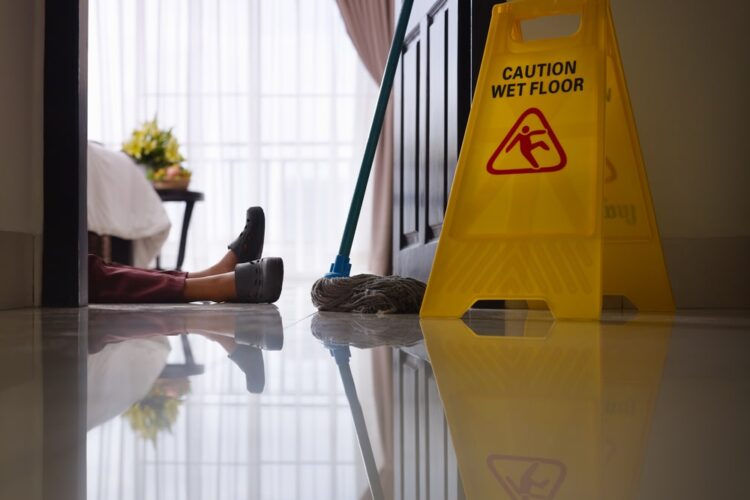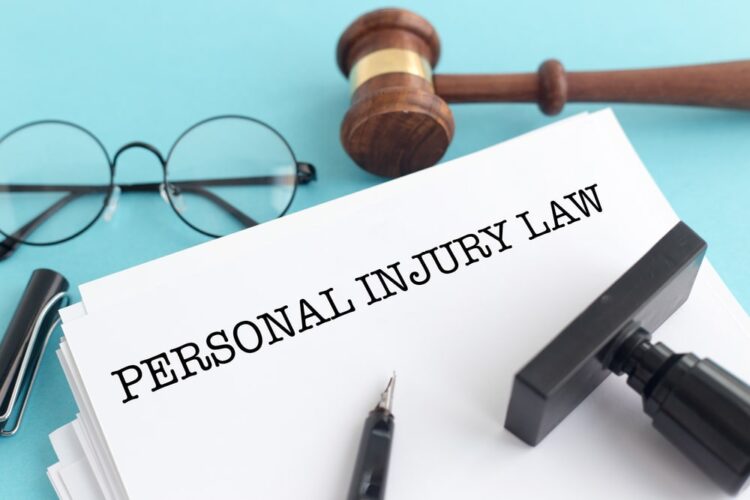July 14, 2025
Recognizing Physical Changes After An Accident
After a car accident, it’s common for people to overlook or downplay symptoms that develop in the following days. Even minor crashes can cause the body to shift abruptly, leading to lingering pain or discomfort that may not show up right away. Some people brush these signs off, thinking they’ll heal on their own. But persistent aches, especially in the neck, shoulders, or lower back, can point to underlying damage that should be addressed by a trained chiropractor.
One key sign is stiffness or limited mobility in your neck or spine. If turning your head or bending at the waist becomes painful, it could indicate whiplash or misalignment of the spine. These types of issues often respond well to chiropractic adjustments, which are designed to restore range of motion and reduce inflammation. Without treatment, these problems can turn into chronic pain that affects your daily life.
Headaches And Dizziness That Linger
Headaches after a collision are more than just annoying; they may be connected to tension in the upper spine or nerve irritation. If you’re experiencing recurring headaches or lightheadedness following your crash, it’s worth getting checked out. These symptoms are sometimes related to undetected joint or muscle strain, which chiropractors are well-equipped to address through careful spinal work and rehabilitative exercises.
Vertigo or imbalance may also follow a wreck, especially if your inner ear or nervous system was disrupted during impact. In many cases, chiropractic care can help correct these issues by promoting better spinal alignment and communication within the body’s systems.
Tingling Or Numbness In The Arms And Legs
Another sign that you may need help is a tingling sensation, numbness, or a sense of weakness in the extremities. These sensations can point to pressure on nerves caused by a herniated disc or spinal misalignment, common results of being rear-ended or jolted during a crash. These symptoms shouldn’t be ignored, especially if they persist or interfere with your ability to function.
Chiropractors often work with these types of injuries by using non-invasive adjustments and therapies to relieve pressure and restore healthy nerve flow. If left untreated, these issues can lead to long-term nerve damage or reduced function.
Difficulty Sleeping Or Increased Irritability
Pain from even a minor injury can interfere with your sleep. If you’re tossing and turning at night or find it hard to get comfortable, it might be due to spinal tension or joint misalignment. Likewise, being in constant discomfort often affects mood and energy levels, which can spill over into your personal and professional life. A chiropractor may help by addressing the root of the pain and helping your body return to a healthier state.
Attorneys like those at our friends at AmeriWell Clinics can attest that many accident victims benefit from early chiropractic intervention. In many personal injury cases, documenting this care can also help establish the impact of the crash and support a more complete recovery.
If you’ve recently been in a car crash and are dealing with ongoing symptoms, whether it’s neck pain, headaches, or general stiffness, this may be a sign that you should see a chiropractor. Addressing these concerns early can help reduce long-term damage and improve your quality of life.
For more guidance on what to do after a car accident or how chiropractic care might benefit your situation, don’t hesitate to speak with a qualified medical provider or personal injury lawyer. Acting quickly can make a real difference in how well and how quickly you recover.
February 4, 2025
Defending A Civil RICO’s Complaint Using The “Domestic Injury” Requirement
It is becoming increasingly common for plaintiffs’ attorneys to plead ordinary business disputes as “civil RICO” cases; particularly in cases involving allegations of fraud. Why? To gain access to the mere threat of treble (i.e. triple) damages and attorney’s fees, which can change the balance of bargaining power in settlement negotiations. Below, our friends at Lanza & Smith PLC discuss some requirements for deafening a civil RICO complaint.
Because two of the common “predicate acts” available under the RICO Act are “mail fraud” and “wire fraud,” it can be easy for a plaintiff’s attorney to frame an ordinary fraud case as a civil RICO case. The defense bar thus needs as many tools as possible to combat this overreach. One of them is a lesser -known limitation on RICO discussed in this article: the “domestic injury” requirement.
The Domestic Injury Requirement
U.S. Courts, including the Supreme Court, have held that a civil RICO plaintiff must demonstrate that their injury is domestic, not foreign. The harm or damages must have a direct connection to the United States.
There are a couple reasons for this rule. First, restricting RICO claims to domestic injuries prevents federal courts from being overwhelmed with lawsuits on foreign matters. Second, this limitation reflects the original purpose of the RICO Act—to address organized crime in the U.S.
But the challenge, in practice, is how to determine whether an injury is domestic or foreign. Most modern business transactions “occur,” arguably, in multiple places. The parties are often spread across the globe, and performance of an agreement often is intended to occur in multiple countries. In such cases, what qualifies as a “domestic injury”? Is it determined by where the defendant resides; where the money is transferred to (usually the defendant’s domicile); where the money is transferred from (usually the plaintiff’s domicile); or where the predicate acts were committed—if a single location can be determined (another complicated question)?
The short answer is: we have no bright-line rule. There have been only few cases to address this issue, and most courts avoid broad generalizations on this issue, limiting their analyses to the facts of each case.
The most-cited case has been the 2016 U.S. Supreme Court case in RJR Nabisco, Inc. v. European Community, 579 U.S. 325 (2016). In that case, The European Community and its 26 member-states filed a civil RICO lawsuit against RJR Nabisco alleging RJR Nabisco participated in a global money-laundering and racketeering scheme and that they suffered financial harm due to the defendants’ activities. However, the Supreme Court ruled that the injury suffered by the European Community was not sufficiently domestic. Although RJR Nabisco is located in the United States, the injured Plaintiffs (and their bank accounts, which allegedly should have been more enriched) were in Europe. This was not enough.
The other oft-cited case is Bascunan v. Elsaca, 874 F.3d 806 (2017). In that case, both the plaintiff and the defendant were citizens of Chile, but the plaintiff alleged the defendant misappropriated funds from the plaintiff’s New York-based bank account. The Second Circuit held that because the misappropriation occurred in the U.S., the injury was domestic despite the foreign domiciles of the parties.
With a few minor exceptions, the courts haven’t given RICO practitioners much guidance beyond RJR Nabisco and Bascunan. Many questions remain unresolved about which types of injuries would or wouldn’t qualify as domestic. For example, how would a court rule on the reverse scenario from RJR Nabisco: where the plaintiff was domestic and the defendant foreign?
Domestic Injury In International RICO Cases
Most civil RICO cases involving at least one foreign party, or involving a transaction occurring, at least partially, outside of the U.S., are “blank slates.” Likely, there would be room for both sides to argue for and against the injury being domestic injury. The defense bar should continue to challenge RICO cases where the injury might not be considered “domestic,” unless clearly ruled out by the limited cases that have already addressed this issue.
December 5, 2024
When Should I Update My Will?
It’s always a good idea to review your will periodically, even if no major changes have occurred, to ensure that it still reflects your current wishes, as a slip and fall lawyer would advise who sees accidents leading to fatalities where families are left scrambling without a will in place. Consulting with an estate planning attorney can also provide guidance tailored to your situation.
Updating your will is an essential aspect of estate planning, ensuring that your wishes regarding the distribution of your assets and care for your loved ones are honored after your death. While there’s no strict timeline for when to revise a will, several key life events and changes in circumstances may necessitate an update. Below are important considerations and situations to reflect upon regarding when and why it may be time to update your will as shared by our friends at Mitchell & Danoff Law Firm, Inc.
1. Major Life Changes
Life is filled with changes, and many of these can significantly impact your will. Perhaps the most significant events include:
- Marriage: When you marry, it’s advisable to update your will to reflect your spouse as a beneficiary or executor. Depending on the laws of your state, your existing will may not automatically include your spouse.
- Divorce: In the event of a divorce, you may wish to remove your ex-spouse from your will and make adjustments to reflect your new circumstances and relationships. If you don’t update your will, your ex-spouse might inherit under the existing provisions, depending on state laws.
- Birth Or Adoption Of A Child: If you welcome a new child into your family through birth or adoption, it’s important to include them in your will. Not only should you consider them as beneficiaries, but you may also want to name guardians in the event of your passing.
- Death Of A Beneficiary: If a beneficiary mentioned in your will passes away, you’ll need to determine how to redistribute those assets. You may wish to include their children or other relatives.
2. Changes In Financial Status
Your financial situation can also dictate when it’s time to revisit your will:
- Increase In Wealth: A substantial increase in your financial situation, such as receiving an inheritance, acquiring substantial property, or investing in business ventures, should prompt a review of your will. You might want to adjust how you allocate your wealth to different beneficiaries.
- Decrease In Wealth: If you face financial hardships or losses (like amortizing debts), it might affect the amount you wish to bequeath, requiring an update to reflect your current financial reality.
3. Relocation
Moving from one state to another (or internationally) can change how your will is interpreted or upheld. Each state has different rules regarding wills, from witnessing requirements to the distribution process. When relocating, revising your will to comply with your new state’s laws is crucial to ensure your assets are managed per your intentions.
4. Changes In Relationships
Over time, your relationships with family members, friends, and even business partners can evolve.
- Adding Or Removing Beneficiaries: If you become estranged from someone you initially included in your will or develop a closer bond with someone else, it’s time to revisit this document. You may wish to add new beneficiaries or remove those you no longer wish to inherit from you.
- Changes In Guardianship: For parents, appointing guardians for minor children is one of the most important aspects of assuring their safety and well-being. If the designated guardian is no longer appropriate — due to changing relationships or circumstances — it’s critical to select someone who aligns with your vision for your children’s upbringing.
5. Changes In Tax Laws
Tax laws regarding estates can change, impacting your estate’s management. If there are significant updates to tax regulations, especially concerning inheritance or estate taxes, it would be wise to consult an estate planning attorney. They can advise on potential tax implications regarding your assets and adjust your will accordingly.
6. Desire To Reassess Provisions
Your thoughts and wishes may change over time, prompting a desire to alter provisions within your will. For example, you might wish to change how specific assets are allocated or create trusts for your beneficiaries to manage long-term wealth responsibly. Regular reviews, even in the absence of major life changes, can help ensure that your will reflects your current values and priorities.
In conclusion, updating your will should be viewed as a continual process rather than a one-time event after initial drafting. By keeping your will current, you help ensure that your wishes are honored and your loved ones are taken care of in accordance with your desires. Regularly reviewing your will, especially after significant life changes, financial shifts, or relocation, allows for necessary adjustments reflecting your evolving circumstances. Working closely with an estate planning professional can provide clarity and ensure your estate plan effectively communicates your intentions.
November 9, 2024
Will Using AI Get Us Into Legal Trouble?
Every business wants an advantage, and artificial intelligence (AI) is supposed to provide it. Like any technology, if used correctly, AI may boost your company. Misusing it can cause problems as an international litigation lawyer knows all too well.
What Is AI?
Artificial intelligence, according to IBM, is technology enabling computers and machines to copy how humans learn, comprehend things, solve problems, make decisions, be creative, and act autonomously.
How Can Small Businesses Use AI?
AI may help your business do many things. Key goals, according to an article in Entrepreneur magazine, include the following.
- Streamlining Operations
AI may automate repetitive and necessary tasks, freeing up employees’ time and resources. This work can include the following:
- Data entry
- Scheduling
- Inventory management
- Bookkeeping
- Financial forecasting
The more AI is integrated into the workforce, businesses will find more tasks for it to do as our friends at Focus Law LA can explain.
- Improving Customer Experience
Chatbots and AI-enabled virtual assistants are becoming more common. They may handle frequent queries, process orders, and troubleshoot problems. AI can personalize marketing efforts by analyzing customer data and creating tailored marketing campaigns. It can also gather and analyze customer feedback so a business can quickly gauge satisfaction levels and find areas of improvement.
- Drive Growth
AI is the next level of digital assistant. It can use and analyze vast amounts of data and generate insights that may help your business grow. You may be able to improve sales strategies, optimize pricing, and identify sales leads. AI could also help with product development by analyzing customer preferences and market trends. Data may provide insight into why and when customers leave so you can take steps to keep them on board before that happens.
How Can AI Get Us Into Legal Trouble?
Depending on the situation, there are multiple ways that using AI may infringe on others’ legal rights. By using what’s available on the internet, AI could infringe on others’ intellectual property rights, create libelous content, and breach data-protection laws. AI tends to “hallucinate” or come up with apparent facts that aren’t accurate or truthful.
With AI’s help, you may create content for your website, social media posts, press releases, or newsletters. Given its access to everything published online, you may not know where it comes from, whether the text is accurate or violates another party’s copyrights. You’ll have to take steps to prevent this, including using tools to detect plagiarism and ensuring apparently factual statements are accurate.
You should only use AI tools trained on datasets without personal information because it may publish or use it in a way that violates the law. There may also be rules or regulations applying to you because you’re in a heavily regulated industry like healthcare or financial services. You must ensure your use of AI won’t violate laws that apply to your work.
Using AI to develop or engineer a product carries risks if it injures someone. The bigger AI’s role, and the less you double-check what it gives you, the greater the risk of a negligence or product liability claim.
AI is a developing technology that many are eager to use, but you shouldn’t give it any more trust than it deserves. Talk to your attorney if you have questions or concerns about using AI and potential legal issues.
August 30, 2024
Preparing For Your First Chiropractic Visit
Starting chiropractic care can be an exciting step toward improving your health and well-being. If you’re new to chiropractic treatments, it’s natural to wonder what to expect during your first visit. Understanding the process can help you feel more comfortable and informed as you embark on this journey.
Initial Consultation
Your first visit to a chiropractor typically begins with a detailed consultation. This is where you’ll discuss your health history, current symptoms, and any specific concerns you may have. The chiropractor will ask questions about your medical history, lifestyle, and any previous injuries or conditions. This information helps them understand your overall health and tailor the treatment to your needs.
Physical Examination
Following the consultation, the chiropractor will perform a physical examination. This may include assessing your posture, range of motion, and overall spinal alignment. They might also conduct specific tests to evaluate how well your muscles and joints are functioning. The goal of this examination is to identify any misalignments or areas of concern that could be affecting your health.
Diagnostic Imaging
In some cases, diagnostic imaging such as X-rays may be needed to get a clearer view of your spine and underlying structures. This helps the chiropractor identify any significant issues that may not be evident during the physical examination. Not all patients will require imaging, but if it is needed, your chiropractor will explain why it is necessary and how it will help in your treatment.
Discussion Of Findings
After the examination and any necessary imaging, the chiropractor will discuss their findings with you. They will explain any issues they’ve identified, how these might be affecting your health, and the recommended treatment plan. This is a good time to ask any questions you may have about the diagnosis, treatment options, and expected outcomes.
Treatment Plan
Based on their findings, the chiropractor will develop a personalized treatment plan. This plan may include chiropractic adjustments, exercises, and lifestyle recommendations. The goal is to address the issues identified and support your overall health and well-being. The chiropractor will explain the rationale behind the treatment plan and how each component is designed to help you achieve your health goals.
Initial Treatment
In many cases, your first visit may also include an initial chiropractic adjustment or other treatment. This helps to start addressing the issues identified during your examination. The chiropractor will guide you through the process, explaining what to expect during the adjustment and how it can benefit you.
Follow-Up And Monitoring
After your initial visit, your chiropractor will schedule follow-up appointments to monitor your progress and adjust the treatment plan as needed. Regular visits allow the chiropractor to track your improvement and make any necessary changes to your treatment approach. This ongoing care helps ensure that you continue to make progress toward your health goals.
What To Bring
For your first visit, it’s helpful to bring any relevant medical records, a list of medications you’re currently taking, and insurance information if applicable. Wearing comfortable clothing that allows easy movement can also be beneficial, as it makes the physical examination and any treatments easier.
Finding The Right Chiropractor
If you’re looking for chiropractic care, working with a chiropractor who meets your needs is essential. Our friends at Mid Atlantic Spinal Rehab & Chiropractic discuss how choosing the right chiropractor can make a significant difference in your care experience. A qualified chiropractor will ensure that you feel comfortable and informed throughout the process, helping you achieve the best possible outcomes.
Your first chiropractic visit is an important step in addressing your health concerns and starting a path to better well-being. By understanding what to expect, you can approach the visit with confidence and clarity. From the initial consultation and examination to the development of a personalized treatment plan, chiropractic care offers a comprehensive approach to improving your health. If you’re ready to explore chiropractic care, consider consulting a chiropractor to begin your journey toward better health.
August 29, 2024
Trusts As A Tool For Wealth Preservation
For individuals looking to protect and preserve wealth for future generations, trusts can act as an essential tool. Whether you’re planning for retirement, considering how to pass on your assets, or seeking to minimize tax liabilities, trusts offer a range of benefits that can help secure your financial legacy. In this post, we’ll explore how trusts function as a reliable method of wealth preservation and why they may be a crucial component of your estate planning strategy. If you’re considering establishing a trust, working with a trust lawyer can help you make informed decisions.
Types Of Trusts And Their Benefits
Trusts come in various forms, each serving specific purposes. Two of the most common types are revocable and irrevocable trusts. A revocable trust, as the name suggests, can be altered or revoked by the grantor during their lifetime. This flexibility allows the grantor to maintain control over the assets in the trust, making it a popular choice for those who want to adjust their estate plan as circumstances change. Revocable trusts also help avoid probate, ensuring a smoother transfer of assets to beneficiaries.
On the other hand, an irrevocable trust cannot be modified once it’s established. While this may seem restrictive, irrevocable trusts offer significant advantages, particularly in asset protection. Because the assets in an irrevocable trust are no longer considered part of the grantor’s estate, they are typically shielded from creditors and legal claims. This makes irrevocable trusts an effective tool for preserving wealth, especially for individuals concerned about potential liabilities.
Minimizing Estate Taxes
One of the key benefits of establishing a trust is the potential to reduce estate taxes. By placing assets in certain types of trusts, such as irrevocable life insurance trusts, grantors can remove these assets from their taxable estate. This can significantly lower the overall tax burden on the estate, allowing more of the wealth to pass on to heirs.
Trusts can act as a tool that offers ongoing financial support for beneficiaries without exposing the assets to high tax rates. For instance, charitable remainder trusts allow individuals to donate to a charity while receiving income from the trust during their lifetime. This approach not only supports a cause but also offers tax benefits, making it a strategic choice for wealth preservation.
Trusts And Asset Protection
Asset protection is another critical aspect of wealth preservation, and trusts are one of the most effective ways to safeguard assets from potential risks. By placing assets in a trust, they are legally separated from the grantor’s personal holdings, making them less vulnerable to claims from creditors or legal disputes.
For business owners, placing business assets in a trust can protect them from potential risks associated with personal liabilities. Similarly, real estate properties can be held in a trust to prevent them from being targeted in lawsuits. This level of protection is particularly valuable for high-net-worth individuals and those in professions with higher liability risks.
Planning For Future Generations
Trusts are not only about protecting assets during your lifetime; they also ensure that your wealth is passed on according to your wishes. By clearly defining how and when assets should be distributed, trusts provide a structured approach to inheritance. This can be especially important for families with minor children, as trusts can specify how assets should be managed until the children reach a certain age or milestone.
Moreover, trusts can be used to promote specific values or goals. For example, a family trust can be set up to fund education for future generations or support philanthropic endeavors. By outlining these objectives in a trust, grantors can leave a lasting legacy that reflects their personal values.
Trusts As A Strategic Tool For Long-Term Wealth Protection
Asset protection, tax reduction, and a structured approach to passing on wealth are all benefits to a trust, a versatile and powerful tool for wealth preservation. Whether you are looking to safeguard your assets from potential risks, minimize estate taxes, or plan for future generations, trusts can provide the security and flexibility needed to achieve your financial goals. Attorneys like those at Kaplan Law Practice, LLC can attest to the importance of carefully considering your options when establishing a trust, as the right choices can make a significant difference in the protection and preservation of your wealth.
August 28, 2024
Deciding To File For Bankruptcy
Bankruptcy
Filing for bankruptcy is a significant decision that comes with many considerations. For those of us facing overwhelming debt, it can be a way to regain control of our financial situation. However, understanding what the process entails is essential before moving forward. Bankruptcy can provide relief from creditors, but it also involves several steps that require careful attention.
Preparing To File
The first step in the bankruptcy process is determining whether it’s the right option for your situation. This usually involves assessing your financial situation, including your debts, assets, income, and expenses. Many people choose to consult with Bankruptcy Lawyers to get a clearer understanding of their options and to decide which type of bankruptcy might be most appropriate.
There are two main types of bankruptcy for individuals: Chapter 7 and Chapter 13. Chapter 7 involves liquidating certain assets to pay off debts, while Chapter 13 allows you to keep your property and pay off debts over time according to a repayment plan. The choice between these two depends on your financial situation and goals.
The Filing Process
Once you’ve decided to file, the process officially begins when you submit a bankruptcy petition to the court. This petition includes detailed information about your financial situation, including a list of your assets, debts, income, and expenses. It’s important to be thorough and accurate in your filing, as this information will be used to determine how your case proceeds.
After filing the petition, an automatic stay goes into effect. This stay stops most creditors from attempting to collect on your debts while the bankruptcy process is underway. This can provide immediate relief from phone calls, letters, and legal actions by creditors.
Meeting With Creditors
As part of the bankruptcy process, you will be required to attend a meeting of creditors, also known as a 341 meeting. During this meeting, the bankruptcy trustee and any creditors who choose to attend will ask you questions about your financial situation and the information in your bankruptcy petition. This meeting is generally straightforward, but it’s important to be honest and provide clear answers to any questions.
While the thought of meeting with creditors can be intimidating, it’s worth noting that many people find this part of the process to be less stressful than they anticipated. Most creditors do not attend the meeting, and the trustee’s questions are typically focused on confirming the accuracy of your paperwork.
Completing The Process
For those filing under Chapter 7, the bankruptcy process usually moves fairly quickly. If everything is in order, the court will discharge most of your debts, meaning you are no longer legally obligated to pay them. This usually happens within a few months of filing. However, certain debts, like student loans and child support, are not dischargeable in bankruptcy.
If you’re filing under Chapter 13, the process takes longer because it involves a repayment plan that lasts three to five years. During this time, you will make regular payments to the trustee, who will distribute the funds to your creditors. As long as you stick to the plan, you’ll receive a discharge of your remaining eligible debts at the end of the repayment period.
Moving Forward After Bankruptcy
Life after bankruptcy can be a fresh start, but it also comes with new responsibilities. It’s important to take steps to rebuild your credit and manage your finances carefully moving forward. This might include creating a budget, saving for emergencies, and making sure all bills are paid on time.
Filing for bankruptcy is a major decision, but it can also be the first step towards regaining control of your financial future. It’s a process that requires careful consideration and the right guidance. Attorneys like those at Leinart Law Firm can attest to the importance of having experienced legal support during this time. If you’re considering bankruptcy, it may be helpful to consult with a professional to explore your options and understand what to expect throughout the process.
June 30, 2024
Unpaid Overtime? Here’s What To Do Next
Discovering you haven’t been paid for overtime hours can be both frustrating and concerning. This situation not only affects your financial stability but can also feel like a breach of trust between you and your employer. However, there are clear steps you can take to address this issue effectively.
Verify Your Overtime Eligibility
The first step is to ensure that you are eligible for overtime pay. Most hourly employees in the United States are entitled to overtime pay under the Fair Labor Standards Act (FLSA), which mandates that employees must be paid at a rate of one and a half times their regular hourly rate for all hours worked beyond 40 in a workweek. Some states have additional rules regarding overtime, such as higher pay rates or overtime owed for over 8 hours worked in a single day.
It’s important to confirm whether you fall into the category of an “exempt” or “non-exempt” employee. Exempt employees, who typically hold managerial or professional roles and meet specific salary thresholds, are not eligible for overtime pay.
Document Your Work Hours
If you confirm that you are non-exempt and eligible for overtime, the next step is to gather proof of the hours worked. Hopefully, you’ve been keeping detailed records of your work hours. If not, start immediately. Document your start and end times, any breaks taken, and the nature of the work performed during these times.
Know Your Rights
Familiarize yourself with both federal and state labor laws. Understanding these laws can help you better communicate with your employer and advocate for yourself effectively. If your employer disputes your claim or refuses to pay the owed overtime, knowing your rights is crucial for deciding how to proceed.
Seek Legal Advice
If discussions with your employer do not resolve the issue, it may be time to seek legal counsel. Your hourly wage lawyer can provide advice on how to proceed based on the specifics of your case. Attorneys like those at Eric Siegel Law can attest to the significance of legal guidance in resolving wage disputes. A qualified lawyer can help you understand your legal options and the best course of action, whether it’s filing a claim with the Department of Labor (DOL) or pursuing legal action in court.
Prepare For The Outcome
Resolving a dispute over unpaid overtime can take time, and the process may test your resilience. It’s important to remain patient and stay informed throughout the process. Keep in touch with your lawyer and respond promptly to any requests for additional information or documentation.
Lawyer Up And Get Started
Unpaid overtime is not just an inconvenience—it’s an infringement of your rights as a worker. Taking structured steps can not only help you recover the compensation you deserve but also reinforce the importance of fair labor practices.
Remember, you have the right to be paid for all the hours you work, and the law is on your side to support those rights. If you find yourself dealing with unpaid overtime, taking prompt and informed action is your best strategy to ensure a fair resolution.
June 9, 2024
Determining Liability In Defective Product Cases
The marketplace in the United States is full of millions of products. From the medications we take for our health to fertilizers that help farmers’ crops to the cars we drive every day and more, people use many products throughout the day. The one thing all of these products have in common is that consumers never question their safety. People simply assume that the products they need will work and in most cases, they do. Unfortunately, though, that is not always the case.
Any product can be defective, particularly when the manufacturer, seller, or retailer was negligent. If you have been hurt by a defective product, it is possible to file a legal claim against the liable party for financial compensation. The first step is determining who caused your injuries. Below, our friends at Big River Trial Attorneys explain who may be liable in these situations.
Negligence During The Manufacturing Process
When a company manufactures a product and there is a mistake made during the process, the manufacturer can be held liable. For example, a manufacturer may make pharmaceutical drugs. If, during the process of manufacturing a certain type of medication it became accidentally contaminated with toxic components, that is a manufacturing error. A manufacturing error occurs when the end product is not the same as it was intended, or designed to perform.
Negligence During The Design Process
Design errors are also included in product liability laws. Design defects differ from manufacturing defects because they do not occur during the manufacturing process. Instead, they occur even before a product is made because the design is inherently defective or dangerous. For example, a makeup company may include carcinogenic substances that cause cancer in their product lines. Often, when one product has a design defect the entire line of products has the same defect.
After being hurt by a product with a defective design, you can file a claim against the entity that designed it, or the manufacturer. To be successful with your claim, you must establish the fact that the defective design makes injuries more likely.
Liability For Failure To Warn
Some products are inherently dangerous. Tools, heavy machinery, and even vehicles are just a few types of products that can cause serious harm, particularly if they are not used properly. When this is the case, manufacturers have a legal duty to warn consumers of the possible dangers associated with using the product.
For example, many types of heavy machinery have adjustable safety guards to prevent workers from getting pulled into machines, to shield people from sharp blades, and more. With these types of products, manufacturers have a legal duty to warn consumers of the risks associated with using them, and to provide instructions regarding the safe use of the product.
What Is Strict Liability In Defective Product Cases?
While most personal injury cases rely on the legal theory of negligence, that is not always the case with product liability claims. Courts often lean on the legal concept of strict liability in cases involving defective products. Strict liability means that you do not have to prove that a manufacturer, seller, or retailer was negligent and that you suffered injuries as a result. You must only prove that the product was faulty and that you were hurt due to the defect.
It is not always easy to determine whether strict liability will apply to a case, or whether you will have to prove negligence. This is one reason it is so critical that you speak to a product liability lawyer any time you are injured due to a defective product. An attorney will advise you of the laws applicable in your case and will prove that you deserve financial compensation for your injuries.
Defendants In Product Liability Claims
After being hurt by a defective product, you can file a claim against any party that contributed to your injuries. The most common defendants in personal injury lawsuits are as follows:
- Retailers who sold a product,
- Wholesalers who distributed a product,
- Original manufacturers,
- Product designers, and
- Marketers who pressured the sale of a product.
Our Product Liability Lawyers Can Help Determine Who Is Liable For Your Injuries
If you have been injured by a defective product, you need sound legal advice. Our attorneys can provide it and determine who is to blame for your injuries so we can hold them accountable for paying full damages. Call us now or contact us online to request a free consultation.
May 28, 2024
Understanding Personal Injury Risks In Smart Homes
Smart homes, equipped with the latest technology, offer convenience and enhance the quality of life for their occupants. However, as these homes become more advanced, they also introduce new risks and potential hazards that homeowners need to be aware of. According to a personal injury lawyer, it is essential that you know these risks to prevent accidents and ensure a safe living environment.
The Growing Popularity Of Smart Homes
Smart homes utilize various interconnected devices and systems to automate and control home functions such as lighting, security, heating, and entertainment. These devices are often controlled remotely via smartphones or voice commands, offering unparalleled convenience. However, the complexity and integration of these systems can sometimes lead to unforeseen problems and safety issues.
Electrical Hazards
One of the primary concerns in smart homes is the risk of electrical hazards. With numerous devices and appliances connected to the home’s electrical system, the chances of short circuits, electrical fires, and other related accidents increase. Faulty wiring, overloaded circuits, and malfunctioning devices can all pose significant risks.
Homeowners should ensure that all smart devices are installed by qualified professionals and that the electrical system can handle the increased load. Regular maintenance and inspection of electrical components are crucial in preventing accidents. If an accident does occur due to poor workmanship, then that means it is time to contact a lawyer.
Security Vulnerabilities
While smart home security systems are designed to protect residents, they can also introduce security vulnerabilities. Hackers can exploit weaknesses in smart home networks to gain unauthorized access, potentially leading to dangerous situations. For instance, compromised smart locks or security cameras can pose a direct threat to personal safety.
To mitigate these risks, homeowners should use strong, unique passwords for their smart devices, regularly update firmware and software, and employ robust network security measures, such as firewalls and encryption. It is also important to work with reputable companies that can help mitigate these risks from the start and offer constant protection.
Automation Failures
Smart homes rely on automation to perform tasks like adjusting the thermostat, controlling lighting, and even managing appliances. However, automation systems are not infallible. Glitches, software bugs, or hardware failures can lead to accidents. For example, a smart oven might overheat due to a malfunction, or automated blinds might close unexpectedly, causing injury.
It’s important to have manual overrides for automated systems and to regularly check and maintain these devices to ensure they function correctly.
Trip And Fall Hazards
Smart homes often feature a variety of connected devices, such as robotic vacuum cleaners, smart furniture, and automated lighting systems. While these devices are designed for convenience, they can also create trip and fall hazards. For instance, a robotic vacuum cleaner moving unexpectedly or a smart coffee table with moving parts can cause accidents.
Ensuring that smart devices are placed and programmed in a way that minimizes movement in high-traffic areas can help reduce the risk of falls. Additionally, good lighting is essential to ensure that all areas of the home are visible and safe to navigate.
Health Risks From EMF Exposure
Electromagnetic fields (EMFs) are generated by all electronic devices, and the proliferation of smart devices in the home increases overall EMF exposure. While research is ongoing, there are concerns about the potential health effects of long-term exposure to EMFs.
Homeowners should be aware of these potential risks and take steps to minimize exposure, such as placing devices away from sleeping areas and limiting the use of unnecessary smart devices.
Legal Implications
In the event of an accident or injury caused by a smart home device, determining liability can be complex. Was the injury due to a manufacturing defect, improper installation, or user error? These questions can complicate legal claims.
Consulting with a lawyer can provide clarity and help navigate the legal aspects of such cases. Attorneys like those at Cowan & Hilgeman can attest to the importance of understanding the nuances of personal injury law in the context of modern technology. They can assist in evaluating the circumstances of the injury and determining the best course of action.
While smart homes offer many benefits, they also introduce new risks that homeowners must be aware of. By understanding these risks and taking appropriate precautions, it is possible to enjoy the convenience of smart home technology while maintaining a safe living environment. However, if you have experienced injuries due to a smart home, contact a lawyer near you for help.










